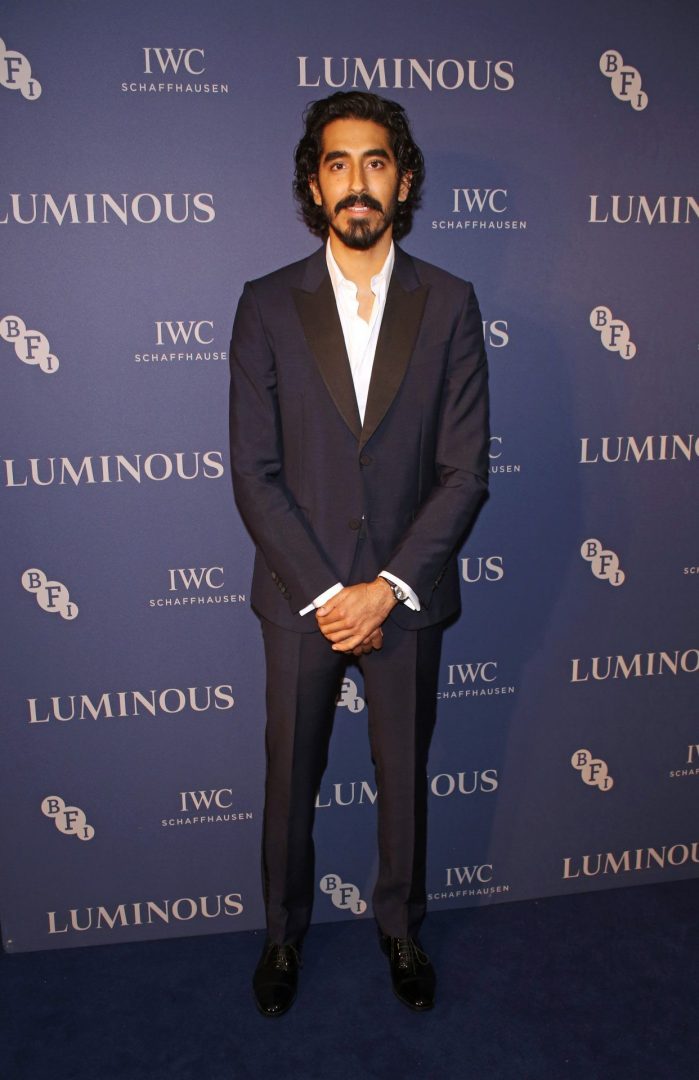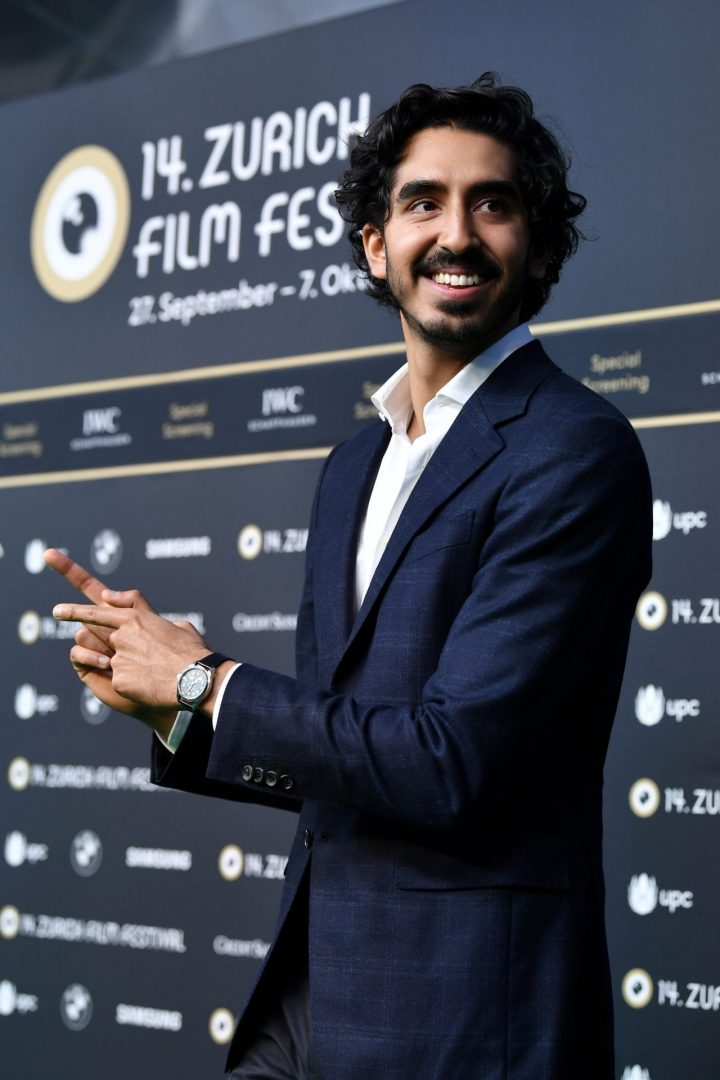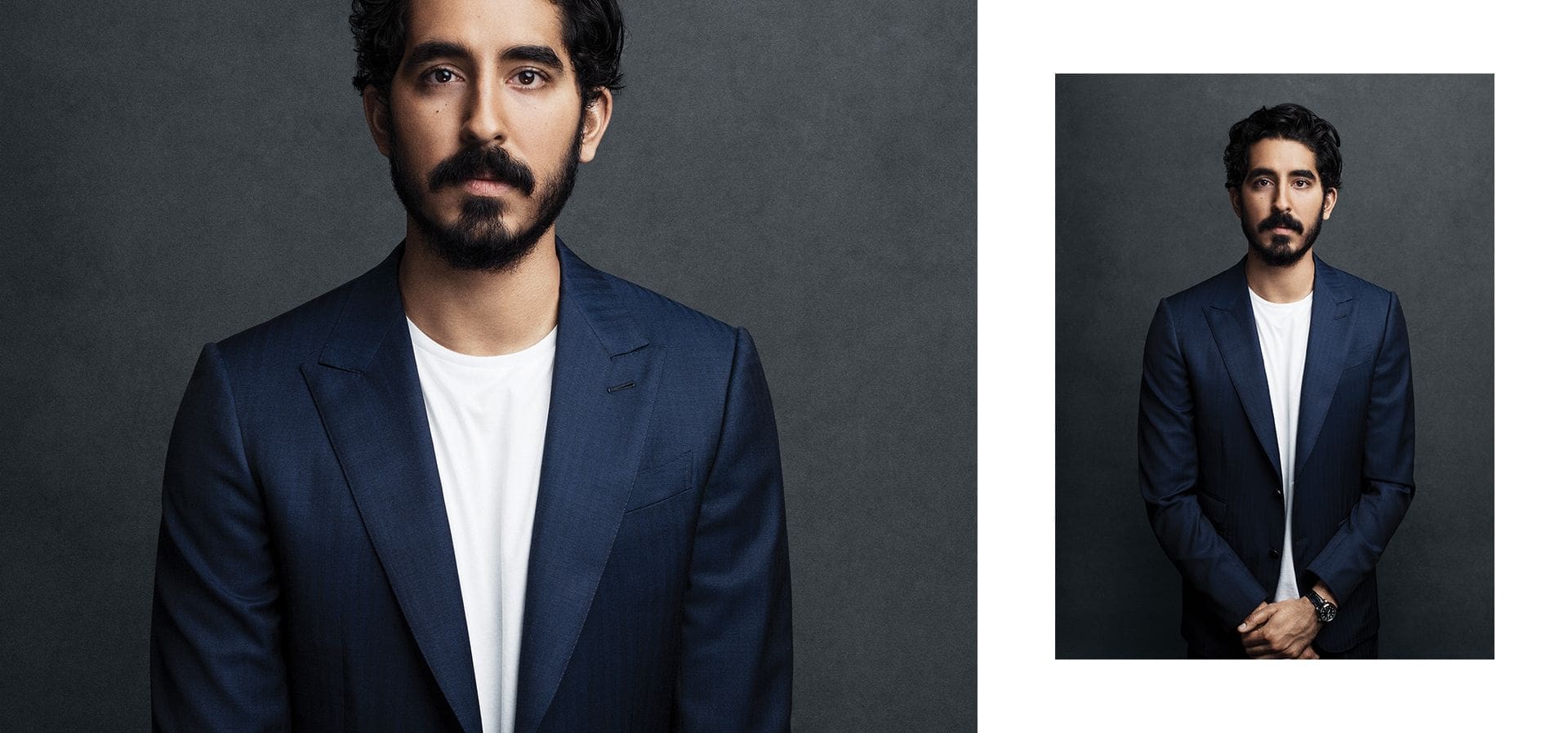Go-To Dev
To say that film and TV actor Dev Patel is on an upward trajectory is an understatement. The star of Slumdog Millionaire, Lion, The Second Best Exotic Marigold Hotel and now, The Personal History of David Copperfield, has become the new go-to Everyman.
So how has he done it? What is his secret to global success considering he has no friendly relatives in the movie business, didn’t have a background in theatre and as a kid was more likely to win a taekwondo tournament than an acting gong? Oh, yes and he is of Indian heritage too – surely that must be a little limiting in the roles department?
How can a guy like that rub shoulders with the likes of Dame Judi Dench, Jeff Daniels, Nicole Kidman, Richard Gere and Sam Waterston – match them for drama and even kick their butts in comedy? (Okay, so maybe not Jeff Daniels, but not many can!) He’s also won a BAFTA, a Screen Actors Guild award and been nominated for both an Oscar and Golden Globe. Not a bad haul for a 30 year old.
Mr. Likeable
Let’s start with the likeability factor as he is one loveable dude – especially to the ladies. As my missis always says, (seemingly about everyone except me!), “He’s easy on the eye”. Being a tall sucker also helps as he clocks in at 1.87m (about 6 foot 2 in the old money) and he’s a five star graduate of the Hugh Grant/Daniel Vettori School of Charmingly Floppy Hair.
By all accounts he’s a nice guy off screen, as Riley Voelkel, his co-star from The Newsroom TV show, said, “He had so much energy on and off set and it always kept our energy up. He made us laugh and was a supportive castmate.” But really, it’s his energy on screen that wins you over as there’s not a lot of resting back on the heels whenever Dev is on screen. Having roles that encourage constant outpourings of emotion certainly help that, but the award-winning scripts don’t keep turning up unless you keep delivering and Dev has definitely been doing that for a while now.
I first saw him on The Newsroom, Aaron Sorkin’s frankly disappointing media saga that somehow survived three seasons from 2012-14. Despite being surrounded by some of my favourite actors, Dev was the one who caught my eye as the social media expert Neal Sampat. Unlike many of his co-stars, Dev seemed to believe in his role (and in the lameass show itself) and I found myself wondering who the heck he was. A quick Google search and night of video watching followed and I soon became a fan.
ACTING STYLE
In a nutshell, there are two types of film actors; the talky ones like Alec Baldwin and Joe Pesci versus the moody ones like Ryan Gosling and John Travolta. That’s not to say these actors can’t do the other style of acting; they are just much better at one over the other.
Dev definitely belongs in the moody camp and his superpower is his ability to react to what’s going on around him, whether that be the location he’s in, the actors he’s with or where the script’s plotline is currently at. Now, if all that sounds really basic Acting 101 stuff to you – you’re right! But let’s not forget that the “movie business” has changed a lot from the real Golden Age of Cinema during the 60s and 70s. Being an actor these days means having your “people” thrash out contracts with the studio’s people for months before the film cameras even come out of their cases. Scripts are then combed through by lawyers and agents for scenes that will benefit your personal brand going forward – leaving not a lot of headspace left to think outside of your own marketability goals.

Yet, over a dozen years since his breakthrough role in Slumdog Millionaire, Dev still seems to be able to transcend all this career triple bottom line stuff and be in tune with the soul of the film he’s in. So, unlike Sean Penn for example, who cannot seem to accept the necessity for any other actor to ever be onscreen with him, Dev is a master of reaction. In many of his roles he doesn’t actually have a lot of lines to deliver, yet is onscreen for a fair whack of the time. In order to balance this conundrum out, Dev doesn’t try to compete with the blockbusting performances by child star newcomers or polished turns by veteran thesps, he just focuses on getting the filmmakers’ message across. Like John Paul Jones in Led Zeppelin, he unobtrusively hangs kickass basslines onto the hysterically overwrought solos by the other superstars that make the band’s songs last forever.
It helps that he has a very expressive face. John Travolta thanked his lucky stars he was able to emote with his eyes; in that all he had to do was think about something and it came out as pure emotion. Travolta owes a lot of his lengthy career to this ability – although he wasn’t the world’s worst dancer either! Dev Patel has similar emotion-on-demand expression skills which he demonstrates particularly in his film work. Watch him in Lion and Slumdog Millionaire and you’ll be observing an acting masterclass in how to respond to other actors’ emotions without saying much at all. If his co-stars, the adults in Lion in particular, fail to take the screen opportunities he’s given them, well, that’s not Dev’s fault.
Of course, Dev Patel doesn’t just play earnest young Indian men fighting against poverty in uplifting tragicomedies. Perhaps his most extraordinary role recently was the titular character in The Personal History of David Copperfield – that’s the Dickensian character, not the magician. A fresh and modern take on classic English literature, Dev shines in a movie as comfortable with employing split screens and sped up footage as it is with worshipping at the altar of the greatest Victorian author. But in casting Dev Patel as David Copperfield, director Armando Iannucci followed the lead Lin-Manuel Miranda started with his stunning Hamilton. For it truly is a new – and exciting – world where it’s perfectly acceptable for African-American actors to play the whitest guys you can ever imagine; George Washington, Thomas Jefferson and Aaron Burr! And have them rap too. Wow.
Dev himself shrugs his shoulders about being in the vanguard of such colour-blind casting, “I just like soulful film-making… [the kind where] you get the feels.” He also wants to play down the race factor in his non-Indian roles, “Being a part of something is enough to send a message. I don’t go in there thinking ‘I’m the brown saviour that’s going to change the world’.” Sometimes just being there is enough of a statement in itself. This may be because Dev has already learned the hard way before that not everyone is so open-minded, telling the Guardian that in his first screen role on the TV show Skins, he’d copped “a lot of aggression from some kids, who didn’t like me not being a Muslim kid but playing one.”

It’s this static from the public Dev finds hardest to deal with, so much so that he finds it difficult to go to social functions anymore because, “It’s like doing a press junket, and everyone’s a critic.” And having your personal life splashed across the tabloids, telling the BBC he just couldn’t understand the public’s fascination with his former relationship with Slumdog Millionaire co-star Frieda Pinto; “You do these most ludicrous interviews and you’re surprised at what people actually want to know. Does someone want to open a newspaper and read the stupidest things – where I go to the gym or what me and my girlfriend want to eat? It’s crazy.”
Crazy maybe but pretty par for the film star course, to be fair. And certainly not issues his fellow Euro celebrities in Hollywood; Steve Coogan and Colin Farrell have found too tiresome! But whatever Hollywood is offering social-wise, Dev ain’t buying. Despite all the fame and fortune – and even living in the 90210 postcode – he absolutely refuses to buy into the trappings that come with that. “People ask how hard it is to stay grounded. It’s easy,” he told the Guardian, “because you just do normal stuff like everyone else. My friend circle is very small, and that’s a conscious choice.”
And those friends have to make allowances for Dev’s Luddite attitude towards social media – which is ironic considering his role as Neal Sampat on The Newsroom. But it’s because of how he sees people being “so consumed” by their phones, even in social situations. So he won’t even let his friends engage him by text; “instead, I call from my car and have a conversation.” Old school!
It’s this love for quality over quantity that has also seen Dev Patel become an ambassador for Swiss watch makers IWC Schaffhausen. Although, as usual, he plays down how it came about; “it was a beautiful coincidence. IWC were hosting a dinner and my agent said I should go down as they’d gathered a really interesting group of filmmakers. I sat next to the old CEO. We just bonded over filmmaking and I really liked what the brand represented.” It’s a partnership that sits easily with Dev; “For me, watches were always aspirational. I think every little boy has looked at someone older and wanted a watch. I remember my grandfather having a really nice watch and thinking I need to work myself up to wearing something like that. Now I can go and choose what I want, but even so I wait to wear certain watches until I feel I have earned it.”

This partnership with IWC has helped influence his film choices, too. “I’ve been able to travel the world with IWC and it has allowed me to meet so many filmmakers. I never thought I’d be meeting the industry in China, or Dubai. It has been a really fruitful, creative relationship for me. I met one of my co-stars, Armie Hammer, at an IWC event in Tribeca, at the film festival. I love Armie, and we had such a great time. There was a film being put together, Hotel Mumbai, and we kind of pushed each other over the edge to do the film.”
Legendary South African golfer Gary Player was accused many times of being “lucky” as the golf ball always seemed to end up close to the hole whenever he hit it. After hearing this for the umpteenth time, Mr Player finally had had enough so he replied; “You know, the funny thing is; the more I practice, the luckier I get.”
The same thing can be said about Dev Patel. Because you don’t just stumble into wildly successful film after incredibly successful film for over a decade. Or have sophisticated Swiss watch companies accidently seat you next to their CEO at dinner. These things happen because you are world class at what you do, the public likes you and, most importantly of all, you work with your co-stars instead of in spite of them. Dev Patel always gives off the impression that he’s just some ordinary dude who lucked into the film business and is eternally grateful for the chance. And that’s his charm.
I say we’re lucky and should be grateful to have him in our movies.
The Personal History of David Copperfield is in cinemas from 16 July 2020

